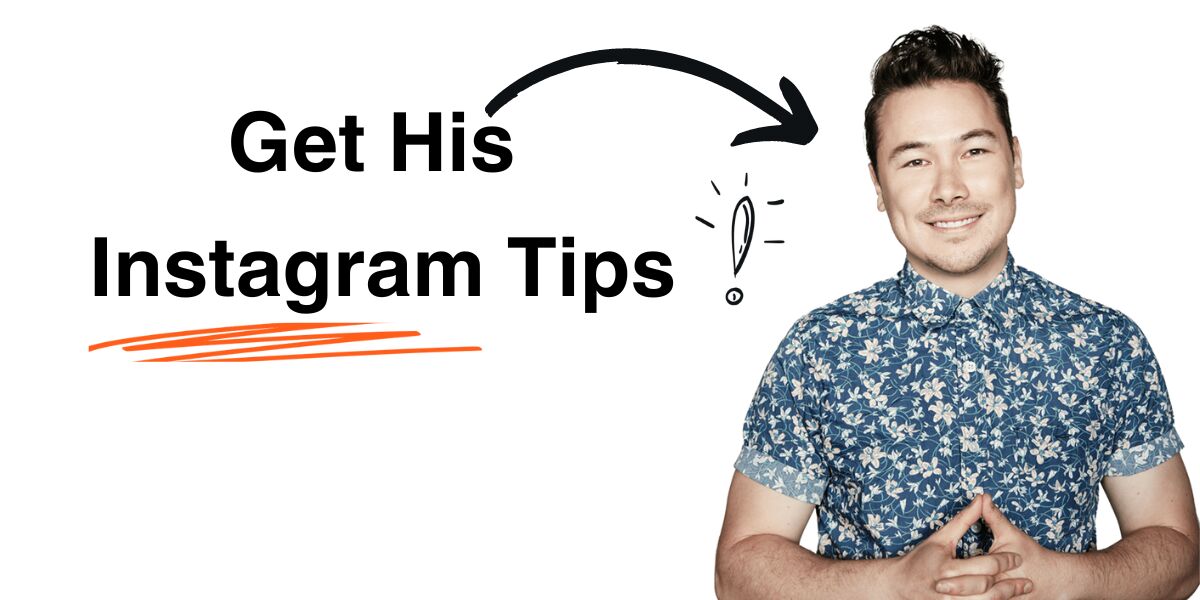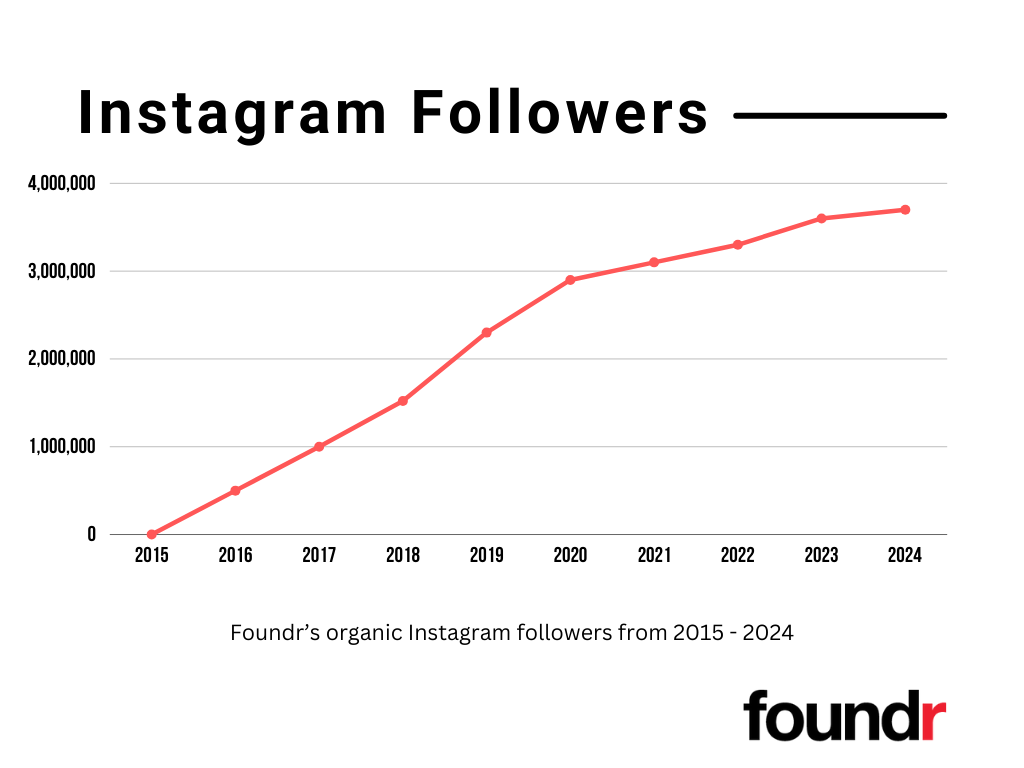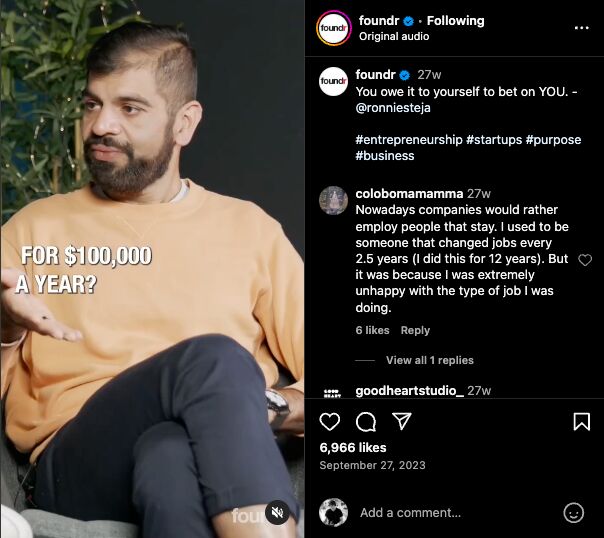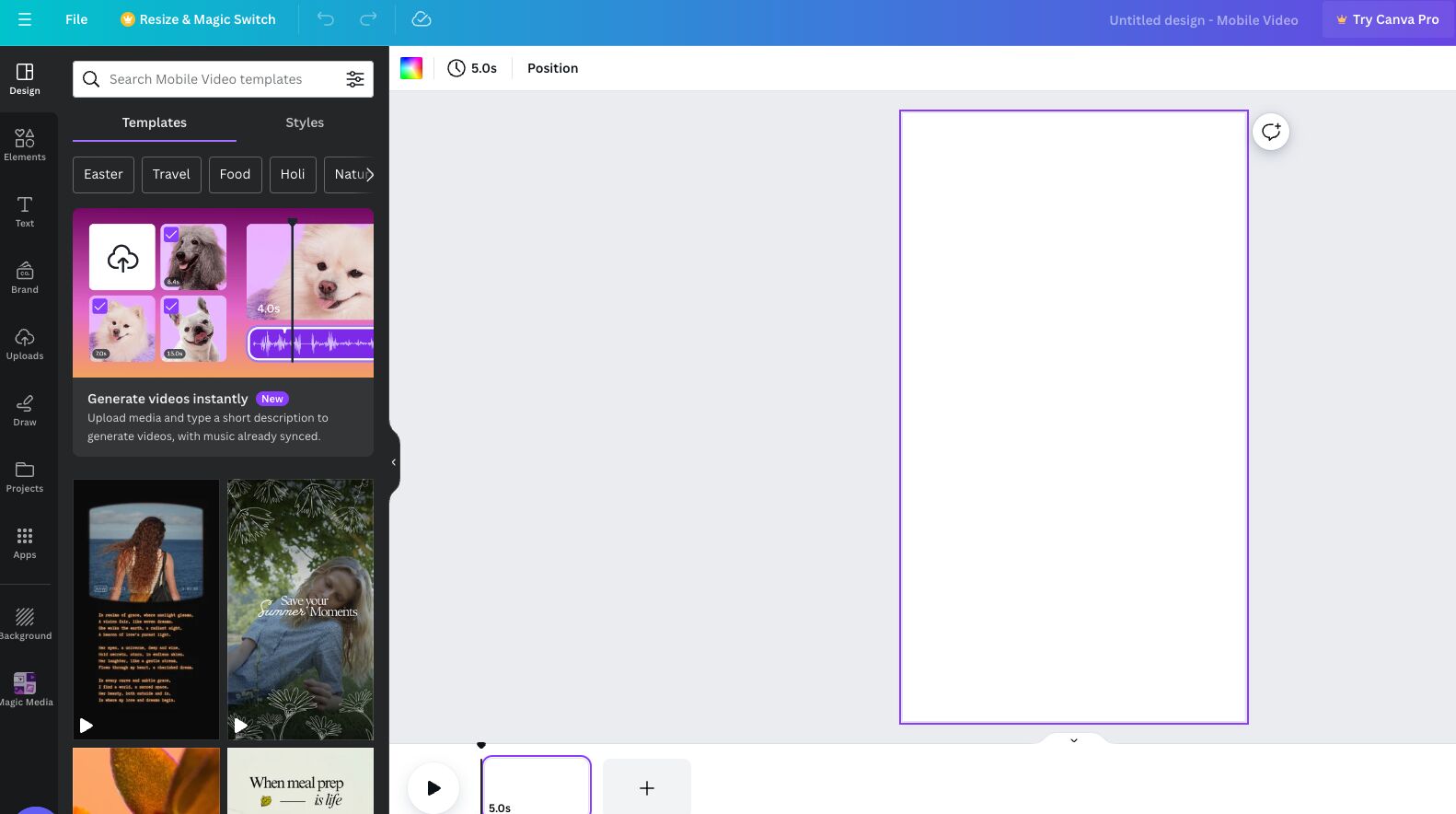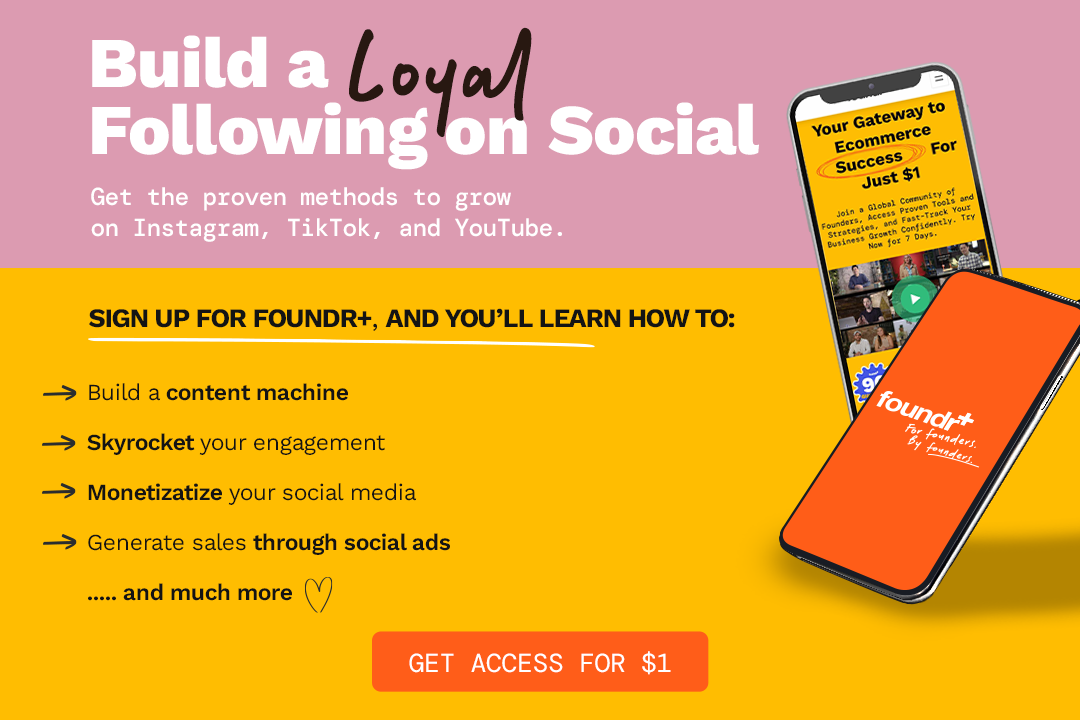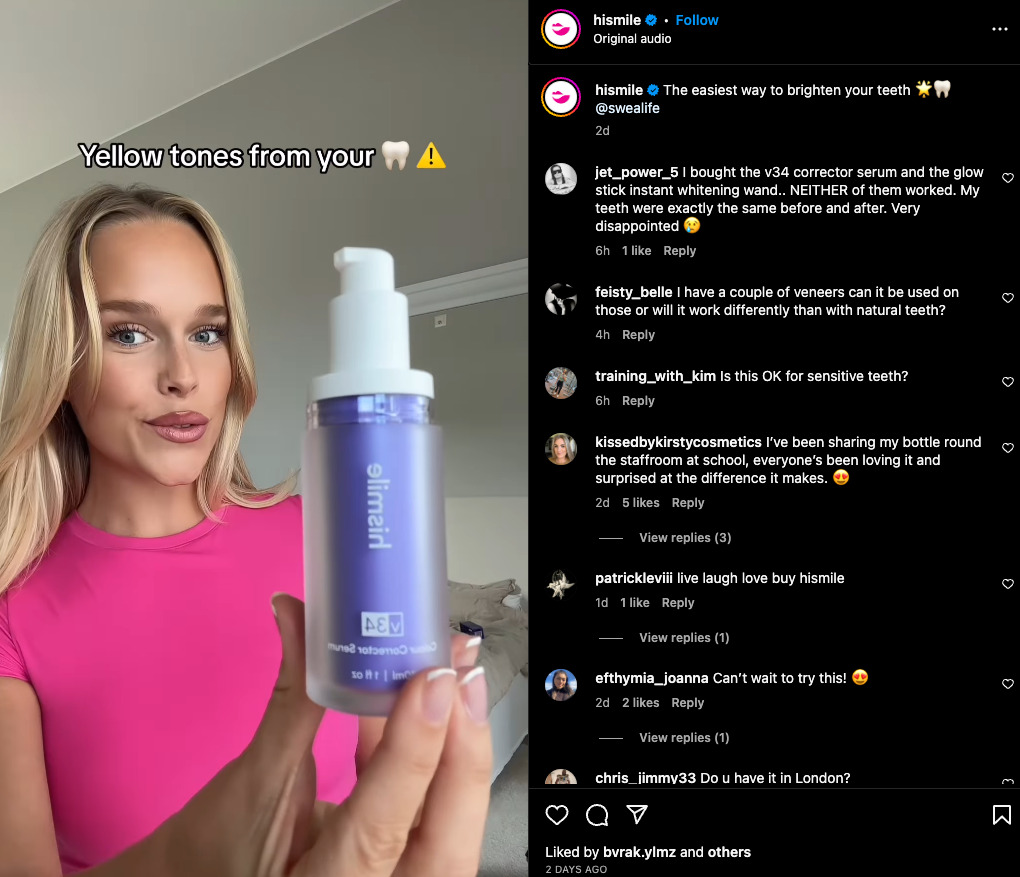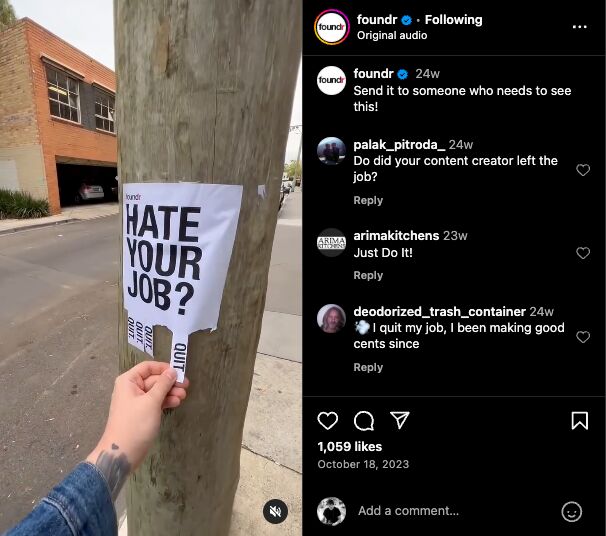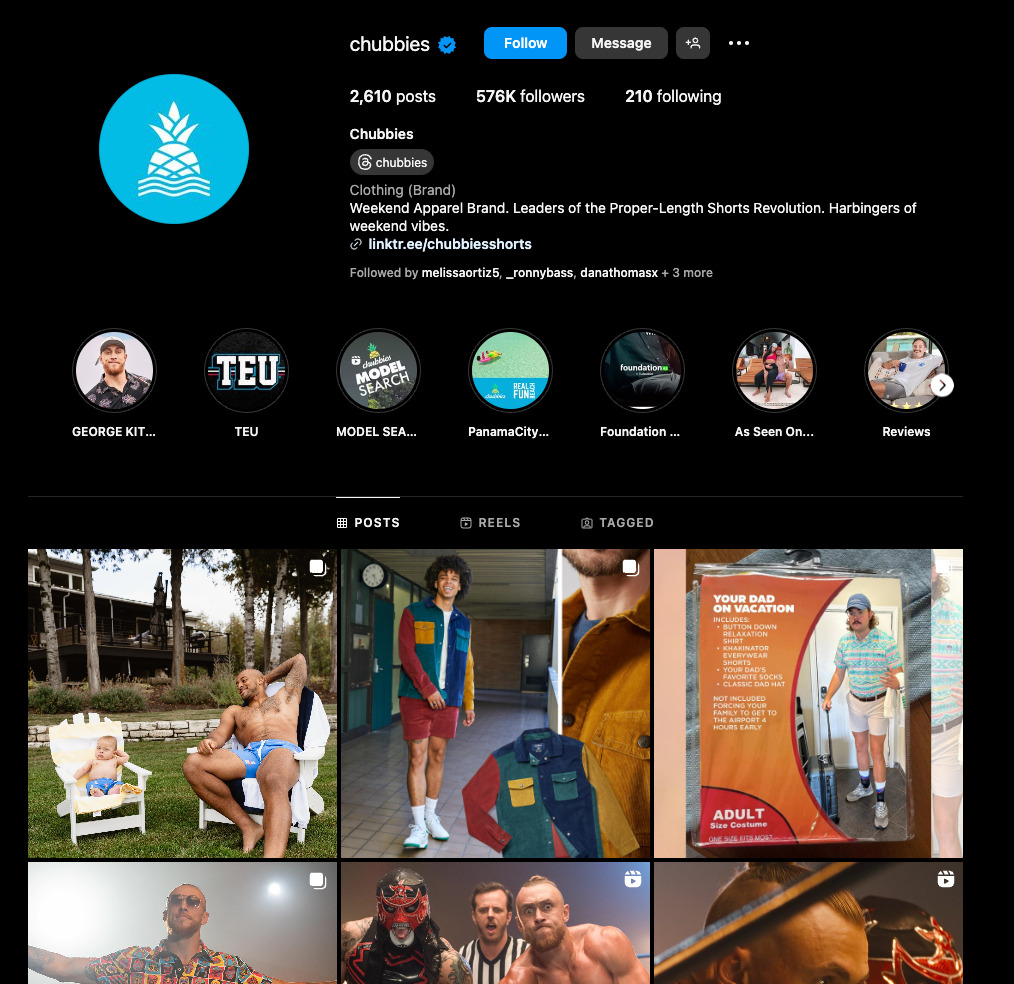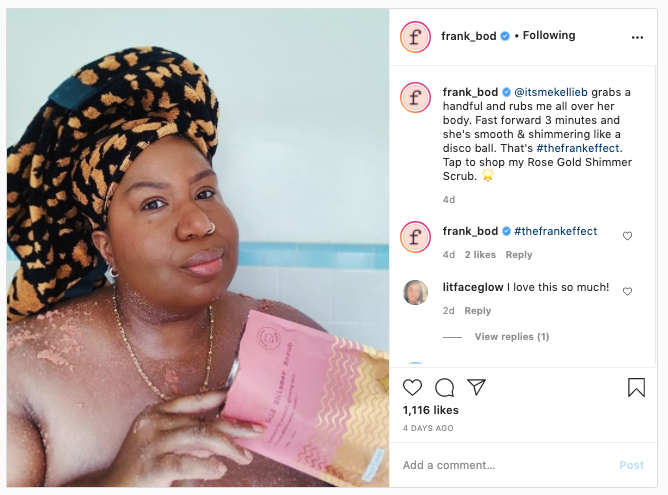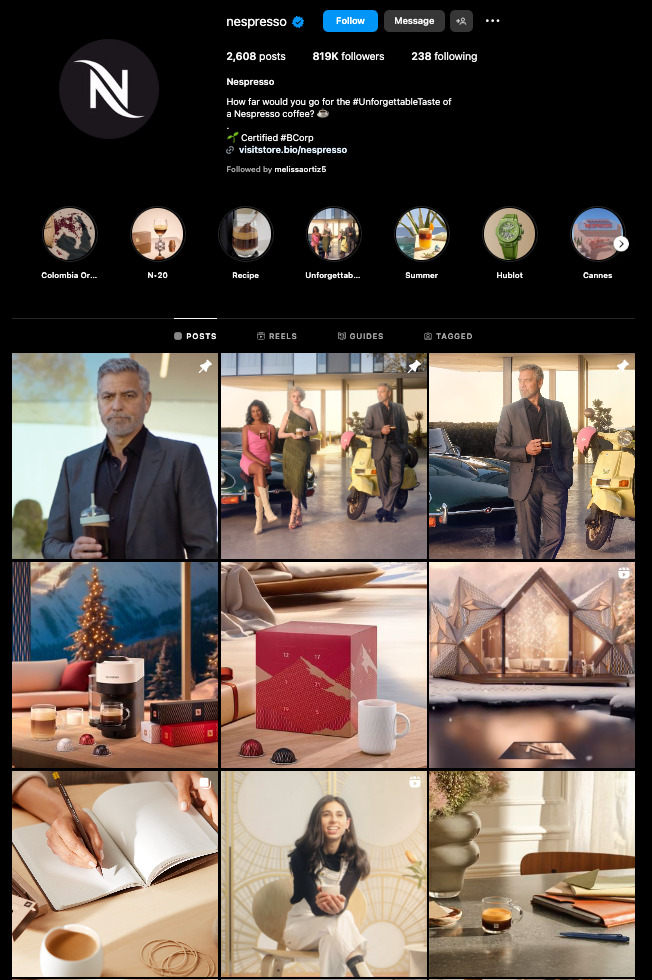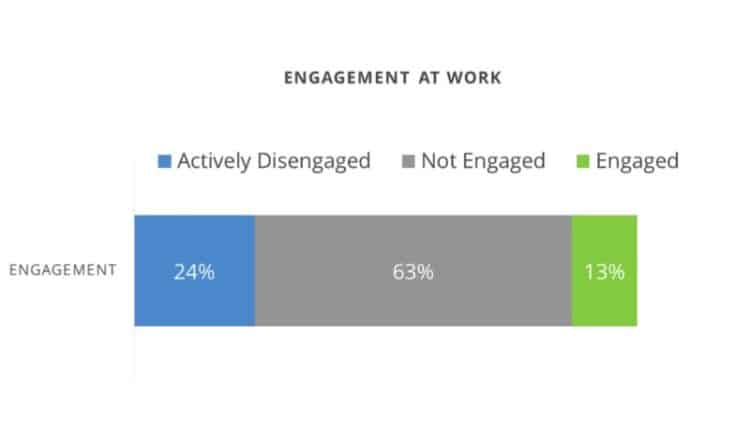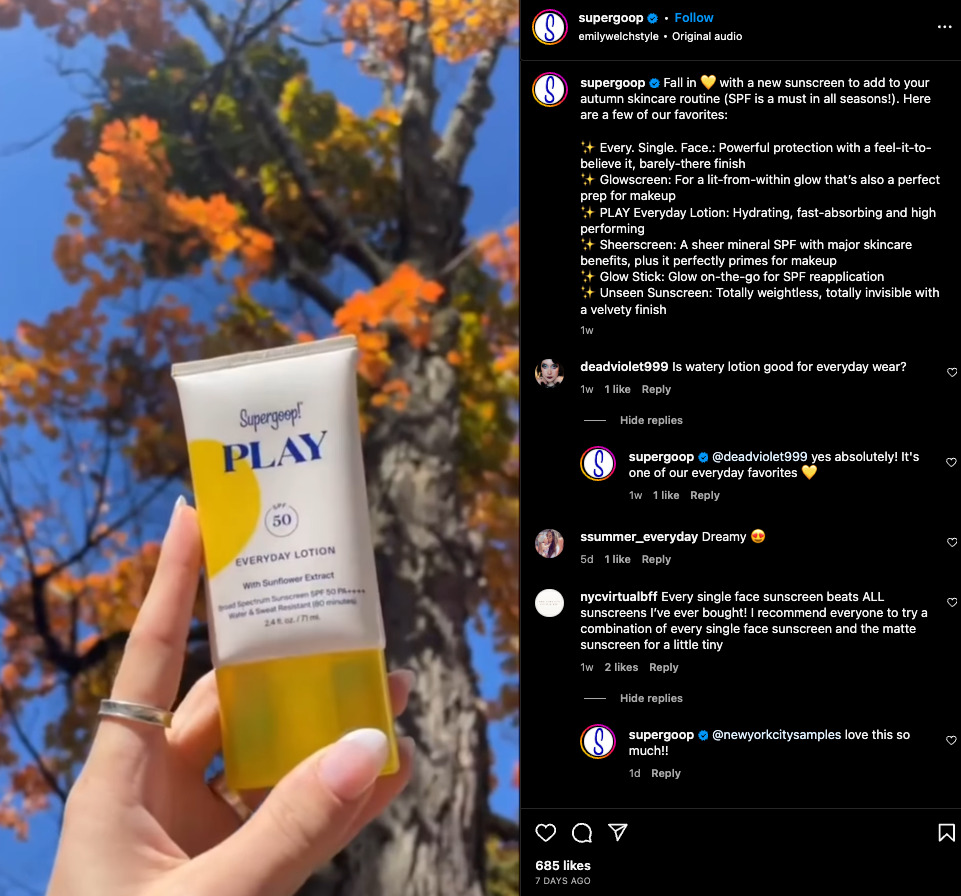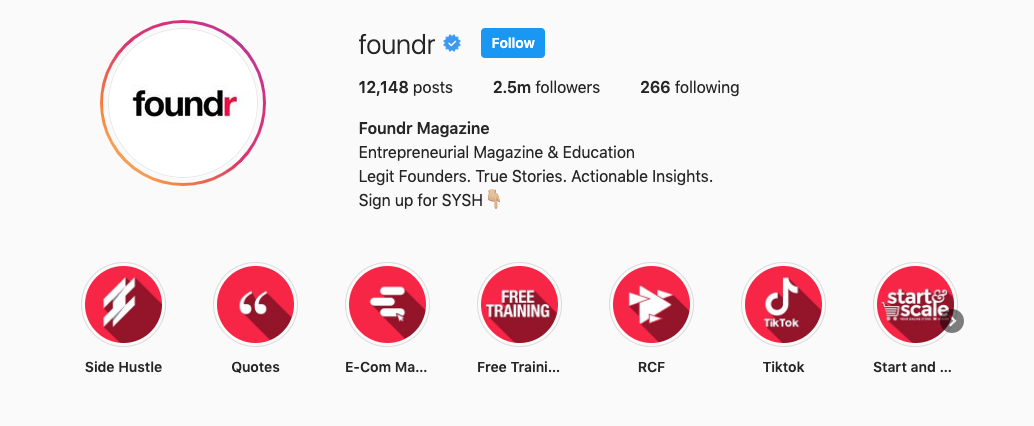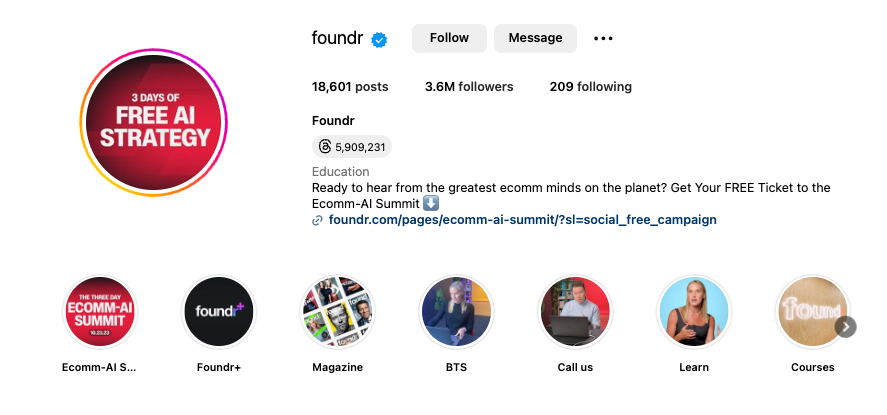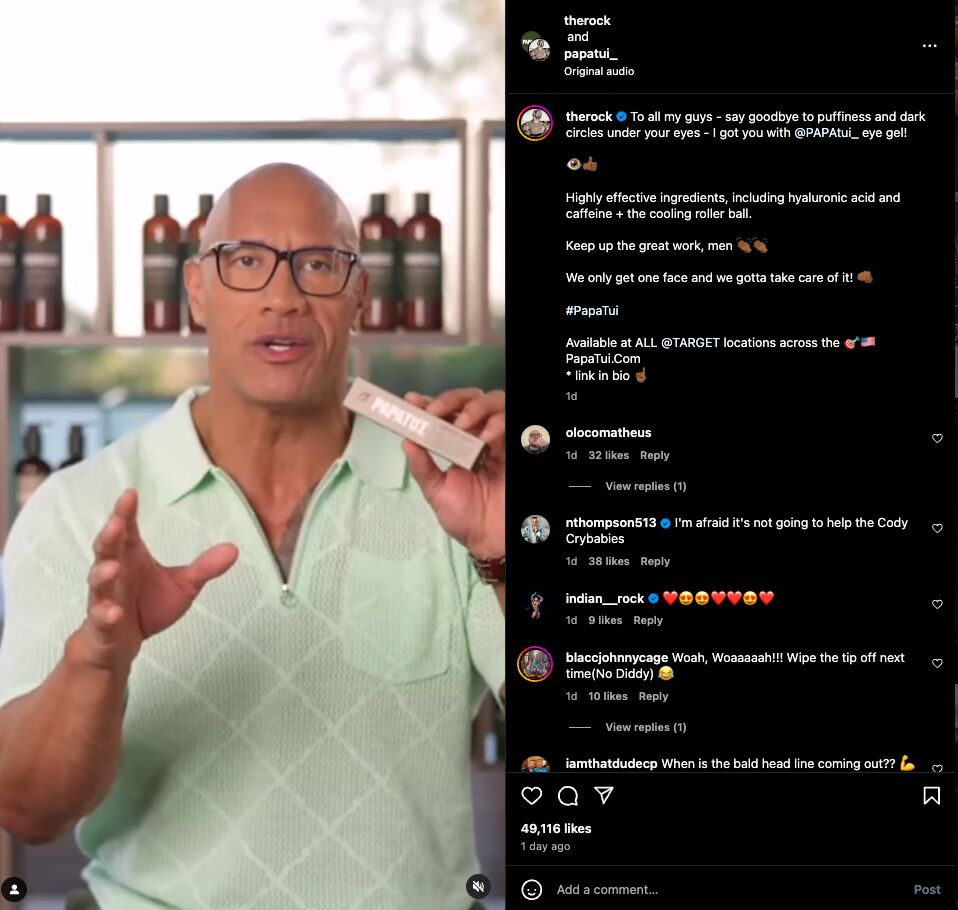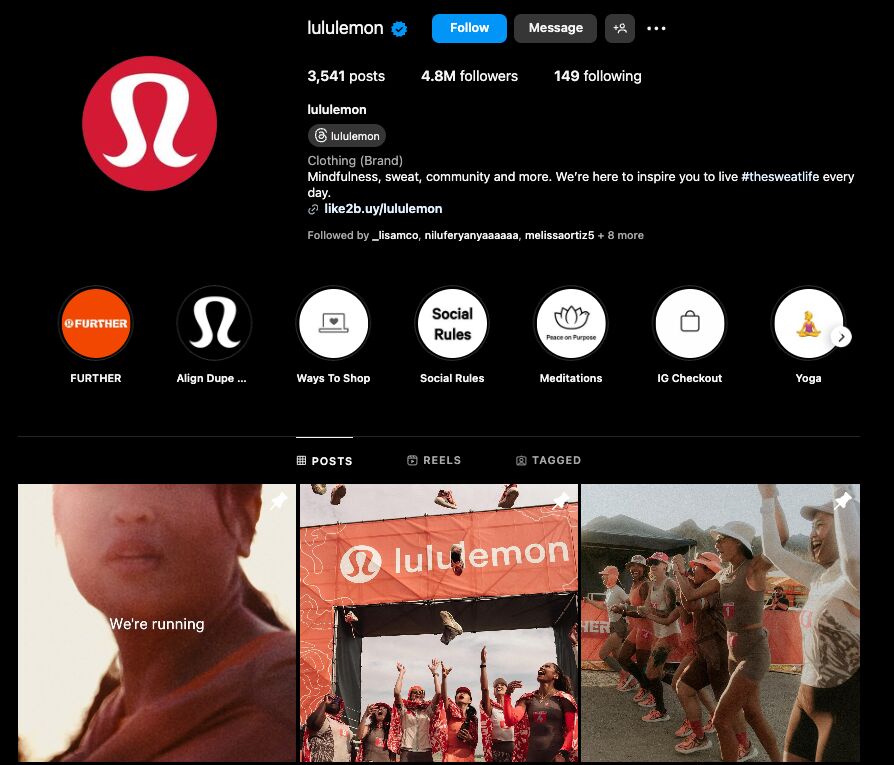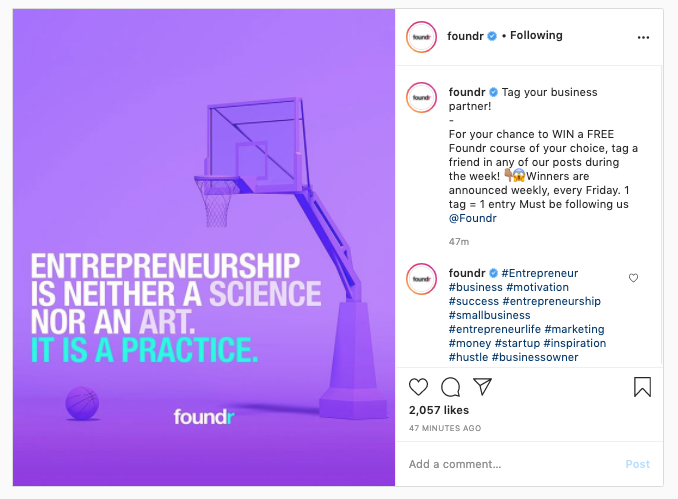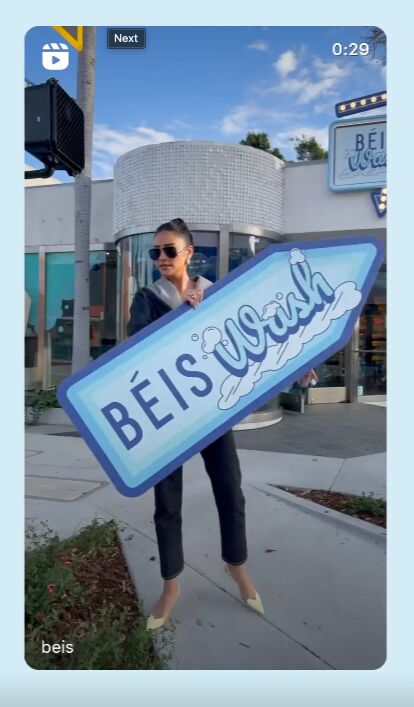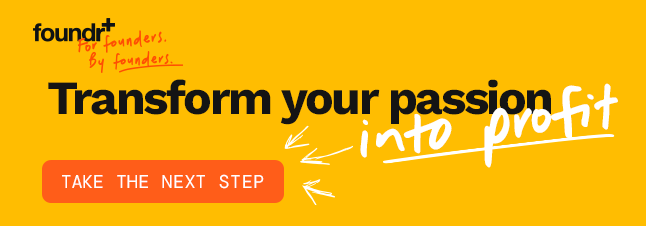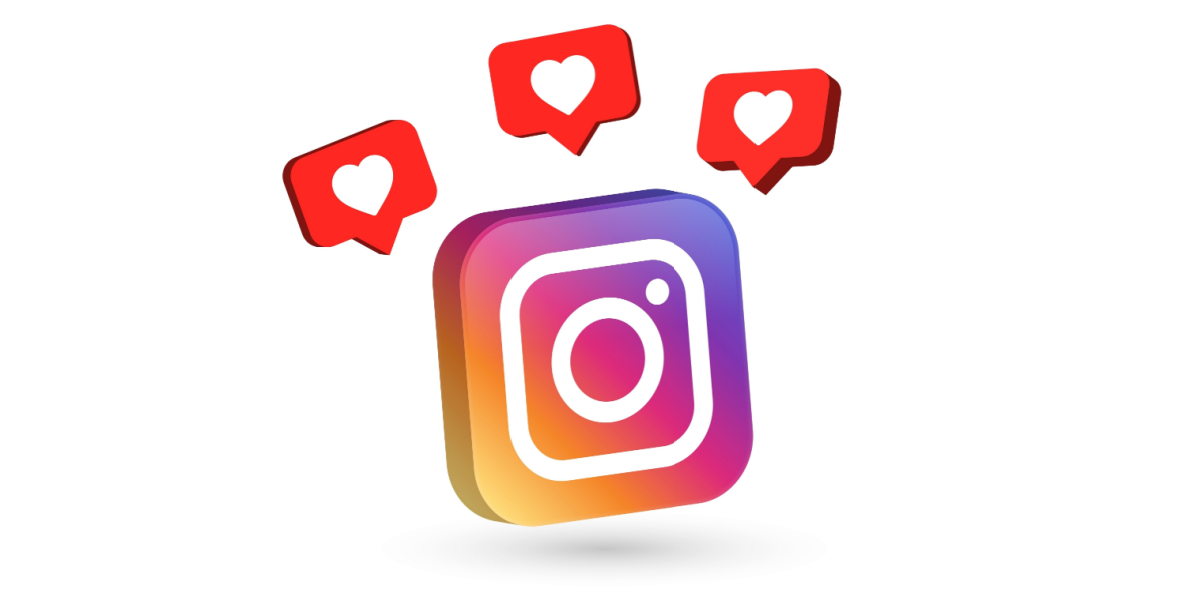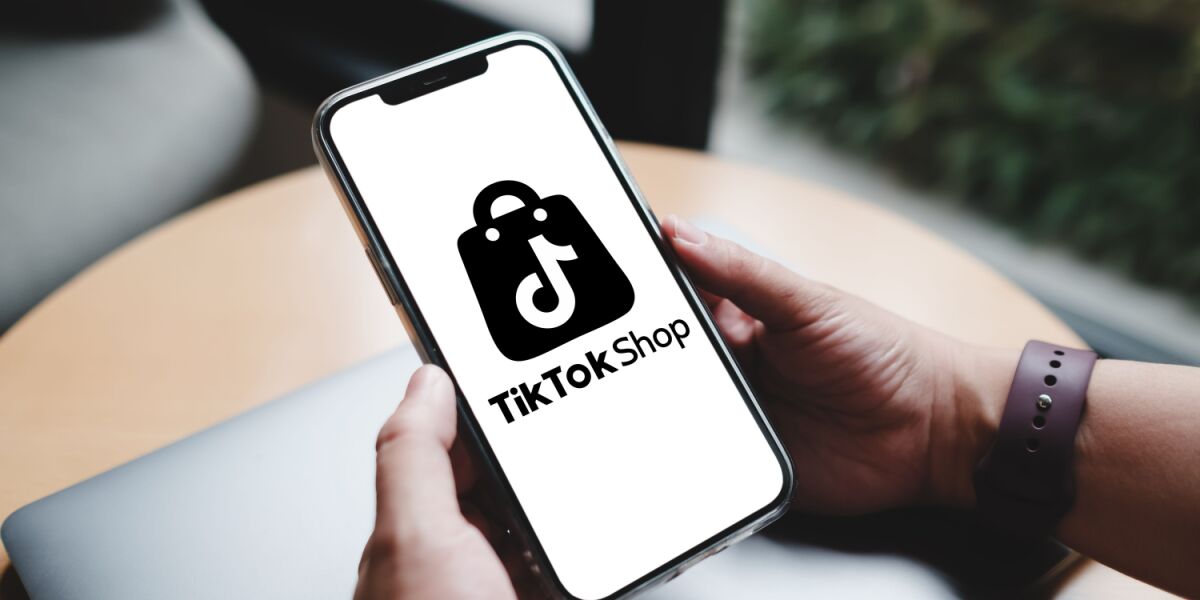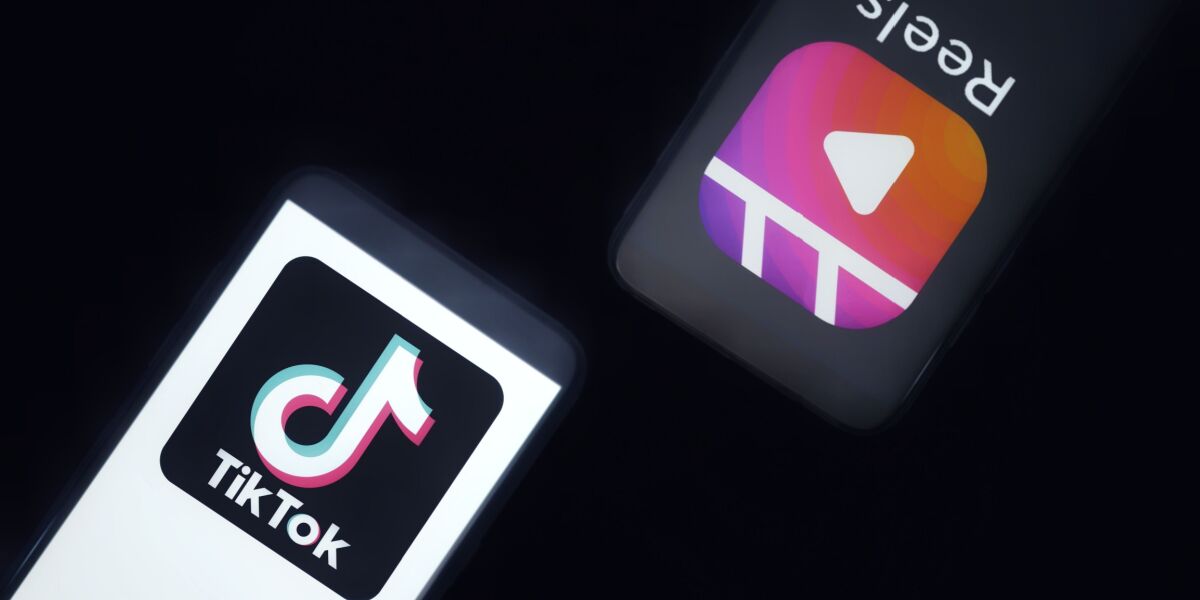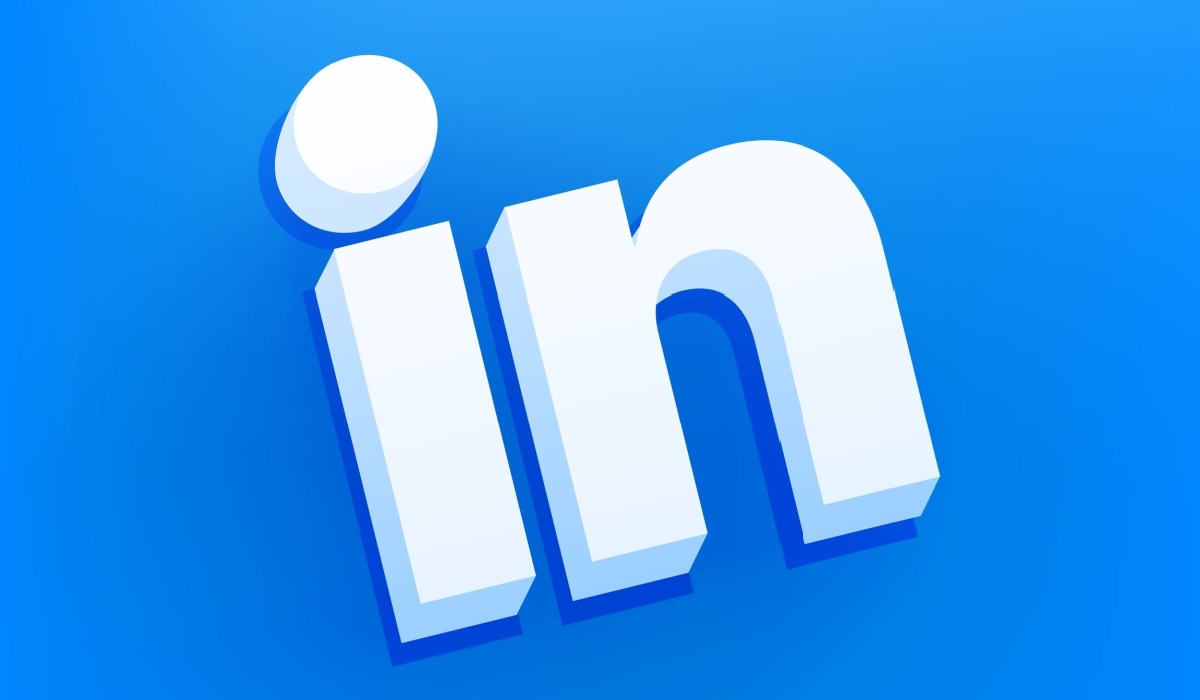In our first two weeks on Instagram, we went from zero followers to more than 10,000 by following a set of rules that we crafted.
Then, with some experimentation and elbow grease, we went from 10,000 followers to amassing more than 3.6 million real Instagram followers–setting us up as one of the top accounts in our niche. We’ve been able to crush sales and conversions, drastically increase our online exposure and audience, and scale our business at a rate that’s exceeded the norm and even our own expectations.
All thanks to Instagram.
In the following comprehensive post, we’ve outlined a step-by-step guide on how we did this and how you can do it too.
As Instagram and its audience have continued to evolve, so have we. We’ve altered our plans and adapted our methods to see what sticks, and managed to climb the ladder to 3.6 million organic followers.
Now, we are here to show you exactly what we did to get this far and exactly how you can too. Discover how to amass a huge following and start taking advantage of the power of this exciting and ever-flourishing social network.
Short On Time? Here’s How to Get More Followers on Instagram
- Choose Instagram content that’s right for you.
- Commit to short-form video.
- People like seeing other people.
- Give your audience a CTA.
- Tell relatable stories.
- Develop an Instagram aesthetic.
- Share user-generated content (UGC).
- Treat your audience like customers.
- Post more than you think.
- Treat your Instagram bio like your landing page.
- Use comment automations.
- Use DMs to start conversations and convert.
- Mix niche and popular hashtags.
- Network (AKA comment, message, and like) with your industry.
- Create collab content with partners.
- Work with influencers to reach more people.
- Make whitelist ads.
- Consistently share on Stories.
- Create proactive and reactive content.
- Run giveaways.
- Build ad campaigns.
- Target geolocations.
- Run offline marketing campaigns and pop-ups.
- Support fan pages.
- The “thunderclap” strategy.
- Understand your target audience’s psychographics.
- Create content in-app.
Don’t Skip: 8 Ways to Make Money on Instagram Without a Following
1. Choose Instagram Content That’s Right for You
This part is going to take some thought and effort.
To gain a huge following of real people on Instagram, you have to produce content that’s not only made specifically for Instagram but also content that’s the right fit for what your audience wants. Finding the right approach and style is crucial because it’s going to become the way your followers recognize you.
Generally speaking, there are types of imagery that work well with a lot of industries; graphics with inspirational quotes, quality food photography, travel images, or beauty selfies are safe starting points. For video content, follow the trends that are happening with sounds, format, and topics.
That being said, carefully consider what type of content it is that you’re producing. You have to remember that Instagram is such a hit because it’s a wholly unique platform, and the experience it provides the user is completely different than something like Facebook or X (Formerly Twitter). Produce content that’s not only made specifically for Instagram but also content that’s the right fit for what your audience wants.
Consider things like:
- How are people going to find your content?
- What hashtags are you going to use?
- How can you format your videos took hook a viewer?
- If someone discovers your content are they going to be intrigued enough to click through to your account?
What is it about the content you produce that will make people do more than just scroll on by? According to MIT neuroscientists, the human brain can identify images seen for as little as 13 milliseconds. In less than a second, a person decides whether or not you’re worth their time. That means you need to stand out.
Once you settle on your content type and strategy, it’s crucial that you stick to that theme.
The number one thing that keeps people coming back to any brand or business is consistency, whether it’s a Starbucks Macchiato or a Snickers bar.
It’s exactly the same as Instagram. Be consistent with your content.
The reason Foundr has so many real followers on Instagram is our dedication to high-quality content. They know that we constantly share high-quality content.
This is also why we’re highly selective of the type of accounts and posts we share, also known as “share-for-share” (S4S). We’re extremely protective of our brand and our audience, which is why we only ever want to be producing content we’re absolutely certain our niche wants.
A common problem a lot of people face when starting out on Instagram is that they’re not entirely sure what type of theme or content it is they want to produce. Unfortunately, there really is no simple solution because, at the end of the day, you don’t want to be a copycat of a larger account or brand. To be really successful on Instagram, you need to be a little unique.
The best way to get started is to do some research on hashtags (don’t worry, we’re going to dig deep into hashtags further on in this article).
Find competitors who use the same hashtags as you do, or even find users who follow these hashtags and see what other kinds of content they like.
From there, it’s just a matter of testing out your content. Do some A/B testing, try one type of content one week and try something else the week after. Find out what works best, and really get to know your audience.
To get you started, we highly recommend using Canva. We have been using Canva on all of our posts, and we love the freedom it gives you to create the designs you want. Plus, it’s free to use!
2. Create Content Your Audience Will Love (Hint: It’s Short-Form Video)
Once you know what kind of content aligns with your brand, the next step is to double down on content creation consistently. That might sound obvious, but it’s often the part most overlooked. Brands get caught up in strategy and forget the core truth: great content is what fuels growth. It’s what hooks your audience and keeps them coming back. The key is figuring out what kind of content resonates with your audience, not just what performs well for others. That means listening, testing, tweaking, and above all, staying consistent.
When we started growing our Instagram account, it was a totally different landscape, just still images, basic filters, and square posts (remember that?). But the platform has evolved massively, and short-form video (particularly Instagram Reels) has taken center stage. Reels are not just a fun feature; they are Instagram’s discovery engine. If you want to expand your reach and attract new followers, Reels are where the magic happens.
Creating effective Reels means understanding how the platform serves and ranks your content. Instagram’s algorithm favors Reels that are engaging from the very start and keep users watching until the end. That first 2–3 seconds? Critical. Lead with a bold statement, a surprising visual, or a compelling question to hook attention fast. From there, focus on delivering value, whether that’s through quick tips, entertainment, storytelling, or inspiration.
Here are a few core principles to guide your Reels strategy:
-
Always shoot vertical video (this isn’t optional!)
-
Open with a strong hook to capture attention immediately.
-
Keep it snappy (30–60 seconds is a sweet spot for watch-through rates.)
-
Use trending audio, but give it your own creative spin.
-
Incorporate on-screen text and captions so your message lands even without sound.
-
Be authentic (polished is nice, but personality wins.)
But don’t just chase trends. The Reels that perform best are the ones that strike a chord with your audience. That’s why developing a real connection with your followers is so important. You need to learn what makes them tick. Sometimes the content you think will go viral flops, and the one you almost didn’t post takes off (it happens to every creator.)
One smart way to uncover what your audience loves is to study the content that’s already working in your niche. What kinds of Reels are being shared by your competitors? What’s getting saved, commented on, or sent via DMs? What’s showing up on your Explore feed? These clues tell you what the algorithm is favoring and what viewers are responding to.
The more you listen to your audience, through comments, DMs, poll stickers, or even just watching analytics, the more you’ll learn to create content that truly connects. Reels aren’t just about dancing or flashy edits, they’re about delivering your message in a way that entertains, educates, or inspires fast.
At the end of the day, content creation isn’t just about checking a box; it’s about earning attention. And Reels are one of the most powerful tools you have to do exactly that.
3. People Like Seeing Other People
Include faces in your content. Videos and imagery with faces have been known to increase engagement because our brains naturally want to interact with other people. Also, content that doesn’t include faces but instead is a point-of-view can help people feel like they’re a part of the content.
Just look at HiSmile’s Instagram account, and you’ll see the power of putting people using their products.
4. Calls to Action (CTA)
Every post should have a strong CTA encouraging your followers to interact with you. This can be engaging with the content or sharing it in their stories. By adding in a call to action, people are more likely to follow through on that action than without it (they don’t know what they don’t know).
The CTA should be relevant to the content and not the same as the one you used in your bio (more on your bio later). It’s a softer ask.
Think of a CTA as a way to remind people that there is an action they could take. By adding a CTA to your content, all you’re doing is reminding your followers that they don’t have to just scroll on past, they can actually do other things including liking your content or writing a comment.
Ask questions in your captions to encourage people to respond. This is a very simple tactic to make sure that your Instagram followers are interacting with your account.
“Putting a question in your caption always creates interest and forces people to read and hopefully respond.” – Bianca Cheah, founder and MD of Sporteluxe
The end goal with your posts is to boost audience engagement. You want them to be interested in your account and personally connected to your brand. A CTA is a way to build your community, to gently remind your followers that they can interact with you personally.
Examples of CTAs are “sent to someone who needs this” or “comment if you agree.” Always give your fans something to do. This helps your account spread organically.
Pro Tip: For video content, it’s important to embed a CTA in the midst of your content. Otherwise, your audience will move on once the value loop has closed.
5. Develop a Story
Capture people’s attention by providing a narrative; don’t just settle for a generic line of text. Get people invested and show off how much value you can provide in one go.
Developing a story also ties into emotion. Always look to elicit an emotion with your posts. Whether you’re looking to inspire people, make them laugh, or stun them, your content should always aim to trigger an emotion in your audience. A great example to look at here would be Chubbies, and note how they’re always looking to make their audience laugh by posting an assortment of product, humor, and user-generated content.
6. User-Generated Content
One of the most effective—and often underused—ways to grow your Instagram following and build trust is by sharing user-generated content (UGC). It’s more than just a nice-to-have. UGC acts as powerful social proof, showing new visitors that real people are using and loving your product or brand. When potential followers see themselves in your content, they’re far more likely to hit “Follow.”
Brands like Frank Body have made UGC a cornerstone of their Instagram strategy, using it to turn everyday customers into brand advocates. Their signature hashtag, #thefrankeffect, has become a rallying point for their community, featuring real people, real results, and a ton of authentic love for the brand. This approach hasn’t just grown their follower count, it’s built a loyal tribe that keeps coming back and spreading the word.
To encourage UGC, you need to actively invite your audience to contribute. Don’t just hope they’ll tag you—ask them to. Use captions and Stories to prompt them to share their own experiences, show off how they use your product, or participate in a theme. Make it fun, make it easy, and give them a reason to engage. Competitions, giveaways, or even just the chance to be featured on your main feed can be powerful motivators.
And don’t forget to streamline the process. Encourage users to tag your account and use a branded hashtag. This makes it simple for you to track submissions and curate the best content. When you do share their post, be sure to credit them clearly. This not only builds goodwill but also reinforces the idea that you genuinely value your community’s voice.
The result? A more dynamic, interactive Instagram presence that feels less like a broadcast and more like a conversation. And that’s exactly what drives long-term engagement and follower growth.
7. Your Instagram Aesthetic
Getting more people to interact with you also involves maintaining a consistent aesthetic theme so that your Instagram content reaffirms your brand identity.
Here are a few ways to generate an Instagram aesthetic that stands out:
- Use the same type of captions
- Shoot your videos in the same angle or style
- Use branded graphics and colors
- Showcase you or your co-founder on camera
Unlike when we started out, “professional-looking” isn’t necessarily critical to success on the platform. However, you want to make sure your Instagram account isn’t too far removed from what a potential customer will see on your website or product pages.
Notice how Nespresso maintains its aesthetic theme by constantly making sure its posts have similar tones and colors. Not only do these posts look great, but because of the consistency and strong branding, you can see how their feed has a natural flow to it that builds familiarity and affinity (it doesn’t hurt to have George Clooney as your ambassador, either).
Remember that connection always beats quantity when it comes to Instagram. Don’t post something for the sake of posting. Always make sure your content is providing value to your audience in some way.
8. Treat Your Community On Instagram Like Lifelong Customers
One of the biggest mistakes people make when building an Instagram account is that they only ever see their followers as numbers.
It’s easy to become obsessed with watching numbers rather than recognizing that each person who chooses to follow you is actually a real person. It doesn’t matter what kind of account you’re running, the same is true everywhere. You must always respect your audience.
I really can’t stress that enough, and it’s become even clearer to us as we’ve gained experience with the platform. If you’re not paying attention and listening to your audience, then you’re no longer building something that has any sort of meaningful impact. All you’re doing is stroking your ego.
So how do you know if you’re connecting with your audience?
While your follower count may be an important metric, our journey to 1 million followers taught us that you must also pay attention to your engagement levels. This means how many likes you’re getting, how many people are bothering to actually comment on your posts, how many people actually go through your Instagram sales funnel.
According to the famed Pareto principle, 80% of your results only come from 20% of your audience or 80% of your revenue only comes from 20% of your customers. While more of a rule of thumb than a hard scientific fact, the Pareto principle should make you realize that it’s not about having a large follower count as much as it is about having a large core of engaged followers.
You don’t want a huge follower count because it gives you bragging rights; you want a huge follower count because by increasing your reach and exposure, you increase the likelihood of finding one authentic follower.
A true and authentic follower is someone who absolutely loves your content and what you do. That’s why you need to focus on creating saveable and shareable content.
If you ever want to develop any sort of influence or exposure, this should be your primary goal in growing a huge follower count. Ten thousand followers isn’t that impressive unless you have at least 1,000 true followers.
That’s why we treat our community like customers.
Make an effort to reply to comments on your content, and be sure to respond to as many DMs as possible. Actually show that there’s a human behind the screen. It’s a surefire way to make yourself stand out from the crowd. Supergoop! does an excellent job of replying to comments and suggestions.
Be as conversational as possible when engaging with other users, and be true to how you speak in real life. Emphasize the personality behind your brand and let people know that you’re not just another robot.
It’s amazing how many brands forget the social aspect of social media networks. It’s no longer a one-way communication model where the audience passively has to accept what you have to say. If someone takes the time to actually write a comment on your post, the very least you can do is reply.
It’s a simple reward for those who bother to engage with you in a dialogue. Something as simple as that goes a long way toward turning someone into a true fan. We’ll even send private messages to our new followers when it’s appropriate. The key here is to make your Instagram followers feel welcomed and happy to be a part of your community.
As we discussed in the last section, you’ll find posts that have calls to action asking people to comment tend to garner the most shares and tags. By starting a conversation this way, you can show your audience that you’re not some faceless corporation, but a person or people who actually care about others’ opinions.
It might even yield unexpected results, as we often find real gems within our comments for ideas on articles and different people to interview.
Pro Tip: We believe Instagram followers are more valuable than TikTok followers. Why? Because they are typically more willing to engage with your content and have a conversation, whereas TikTok users are just there for entertainment.
9. Share Content on Instagram More Than You Think
Aim to share content on a regular basis and more than you’re comfortable with. When we started building our account, we shared about once every three to four hours because the higher the volume, the more likely you’re going to hit a viral post that people will see on the “For You” page.
However, don’t bulk post a whole bunch of content in one sitting; users will often regard this as spam and unfollow you. Think of it like sowing seeds.
You don’t want to just plug all your seeds into a hole in one go; you want to spread them out.
You’re going for consistency. If your audience can’t comfortably rely on you to post regularly, you’re not going to find many people willing to follow you on the off chance that you’re going to post something every now and then.
Pro Tip: Contrary to belief…there is post on Sundays. Sunday is usually a pretty quiet day on Instagram, making it the perfect opportunity for you to get ahead of the pack and get your content in front of even more people.
10. Your Instagram Bio and Profile Picture Is Your Landing Page
On Instagram, your bio is a crucial piece of real estate. Many times it will be the first time people interact with your brand. You can best make use of this section by having a strong call to action. You can use up to 150 characters, so a short snappy CTA works best.
A strong CTA should be an absolute no-brainer for your audience. You already know that they can see your content, so make it worth their while to actually take a look at your bio by offering something that you know they’ll love.
To create a strong CTA, you want to be as simple and no-nonsense as possible. Because you only get one live link when it comes to Instagram, which is in your bio, you want to be able to get as much value as possible out of that link.
Your bio should also be compelling. Your potential followers on Instagram have a few seconds to decide whether or not they want to follow you. Your bio should capture their attention and make them want to follow you, or at the very least, scroll down further to check out your content.
Your bio should also be searchable. We included the keywords “startup,” entrepreneurs,'” and “entrepreneur magazine” so when people search on Instagram using these terms, our profile will show up in their search results.
Also, make sure that your profile picture is clear and captivating so that people can recognize even a small icon. You can also use your profile picture as ad real estate. We used it to share about one of our virtual summits. This is tricky to do from a design standpoint, but can stop the scroll of your followers who are used to your normal logo.
Pro Tip: In 2024, Instagram now allows you to have multiple CTA links in your bio. However, the link that first appears in your bio will still get a majority of the traffic, so make sure it’s your priority CTA.
11. Use Comment Automations
Recently, we’ve been using a comment automation tool called ManyChat, to help our audience learn more about the content we’re sharing, whether it’s a giveaway, event, podcast, or deep-dive article like this one. A comment automation tool will set up a conversation in your account’s DM, which feels more personal than a comment thread.
12. DM Conversations
Instagram is putting more emphasis on direct message conversations and exclusive communities through “Broadcast Channels.” Through DMs, you can build relationships with prospective followers, provide customer service, and build collaborative partnerships.
So, don’t avoid the paper airplane icon and get active in your DMs.
13. Use Hashtags to Get Into Your Niche
Hashtags aren’t what they used to be, but they still matter.
When we were growing our account to a million followers, “hashtag bombing” was a way to grow your account and get seen.
Today, the platform is incentivizing different things like trending sounds, but be careful of using copyrighted sounds. Because Instagram business accounts have more limitations.
For hashtags, we suggest treating them more like keyword research than a magical device to get followers. So, research what hashtags are getting used in your niche and start adding them to your posts. Here’s what hashtag recipe to use for every post:
- 1-2 branded hashtags custom to you
- 2-3 general industry niche hashtags
- 2-3 specific hashtags to the content you’re posting
There’s still no exact science on how to use hashtags, so that’s why you need to be willing to experiment with what works best for your account to match the Instagram algorithms.
14. Network with Your Niche
It’s not all about content and keywords. To thrive on Instagram, you’re going to have to reach out and interact with some real, live humans. Networking can work wonders in the social media sphere and it was a big driver of Foundr’s success.
When we started, we managed to get introduced to this huge network of entrepreneurs, all with accounts of over 20,000 Instagram followers. They helped us out big time by sharing our content, and there are similar networks for all kinds of industries, with users who are all willing to help out, so long as you return the favor of course!
Remember, if you help people without expecting something in return then you get good karma. Don’t approach joining and teaming up with other accounts with an attitude of, “What’s in it for me?” Rather, think of it as just helping your fellow person out, and you never know, good things may happen to you down the road.
15. Use Collaborations to Get More Instagram Followers
When it comes to growing a huge following on Instagram, you’re going to have to get used to the idea of collaboration over competition.
This is where the incredibly powerful concept of S4S comes into play. For newcomers, S4S stands for “share for share.” If you’re looking to land a million followers on Instagram, or even tens of thousands, you need to get used to the idea of collaborating with other brand’s content. The basics of S4S are quite simple. You ask another influencer in your niche if they would like to collaborate on a post together.
This way you’ll be able to expose each other’s brands to each other’s audiences, some of whom likely have never even heard of you before. The best part is that if you choose who you do S4S with carefully, you’ll probably find someone with an audience who you know will like your content too. You’ll quickly discover that one of the greatest things about Instagram is that it allows you to tap directly into a niche with distinct likes, interests, hobbies, and needs.
Collabs can also work with your own personal brand, for example, Dwayne Johnson used the collab feature to promote his new skincare line PAPUTI. The collab immediately gave the brand credibility and exposed the account to Johnson’s millions of followers.
Another strategy with collaborations is to find a like-for-like brand to do a collab campaign. For example, if you run a snow shovel brand, why not reach out to an ice melt brand for a collab content showcasing the perfect sidewalk clearing?
Or, if you’re a swimwear brand, collaborate with a sunscreen brand for the upcoming summer season.
A lot of people get discouraged by the idea of approaching bigger accounts for a collab because it seems like they don’t have a comparable follower count. But while your follower count may be the most important metric on Instagram, it doesn’t mean that it is the only metric on Instagram. If it were, then anyone could be an influencer with a couple of bucks and a few thousand bots as Instagram followers.
The best way to find leverage, in any business deal, not just Instagram, is to take a step back and think about what it is that only you can offer. What is that unique aspect you can bring that the other person might have a hard time getting?
For one, you can compare your engagement levels. If you can guarantee a highly engaged audience with many true Instagram followers, then you can easily use that as leverage in collaborations. Because the level of respect and loyalty you command from your audience is only something you can give, and that makes it a valuable commodity.
Beyond that, think about what else you can offer.
You can easily bring value and generate a ton of goodwill by being a regular commenter for a larger account. A valuable comment is something that is more than just the generic “oh wow, this is great!” statement. Stand out by taking the effort to be different.
Start an interesting discussion and let your targeted influencer know that you exist. Who knows, you might actually catch them in a generous mood and maybe they’ll give you a shoutout just because they like your moxie.
Pro Tip: If you can’t get a commitment for a collaborative feed post, an alternative ask is to do a swap on Instagram stories instead.
16. Work with Influencers to Get More Instagram Followers
This is by far one of the best ways to increase the number of Instagram followers you have. You’ll be hard-pressed to find any other tactic to generate as strong as an ROI.
Create a list of 10-20 influencers you’d like to regularly engage with. Know exactly who it is you want to get in touch with because these will be the people who can help take your Instagram account to the next level. Get influencers to share your content or shout you out. Arrange for influencers to give you a shoutout by participating in an S4S deal.
Use hashtags to find out who the top influencers in your niche are. Take a look at what the top hashtags in your niche are and see if you can identify any particular account that consistently appears in the “top” or “trending” posts. You can pretty much guarantee that they’re an influencer and someone you want to connect with.
But before you start sending free product or signing expensive influencer contracts, let’s break down the types of influencers:
- Traditional Celebrities: Hollywood stars, musicians, and politicians
- Macroinfluencers: The highest cost to work with and the widest reach and audience
- Influencers: Full-time or rising star influencers, typically with powerful voices in a niche or industry
- Microinfluencers: The cheapest to work with and the narrowest niche, could be a popular account in a mid-sized city or a trusted voice in a niche
- Nanoinfluencers: An everyday person with a consistent social media presence or a content them.
Numbers aside, how do you decide who to work with? It’s all about their point of view. Read our guides to learn more about working with influencers:
- Influencer Marketing 101
- How to Make Influencer Partnerships Last from an Industry Pro
- How to Keep Your Influencer Marketing Campaign Authentic
- What Is Predictive Analytics and How Can It Support Influencer Marketing?
Be mindful that influencers and celebrities are required to disclose sponsored content on their social media channels. It all comes down to transparency and making sure followers are aware that someone has been paid or given something of value to promote a product as opposed to them just enjoying it.
In an effort to stamp out misleading product promotion or endorsements, the Federal Trade Commission (FTC) has released a simple guideline on what you can and cannot do.
Influencers and celebrities are now required to follow these guidelines using hashtags or other signifiers. If you choose to pay or sponsor another brand to promote yours, make sure you follow these guidelines. This includes specific hashtags and, if it’s a business account, a “paid partnership” tag. You can see both examples in the post below, #sponsored and “paid partnership with earthboundfarm”.
These rules only apply if there’s a financial, employment, personal, or family relationship. You are free to repost and share content from other brands that you love, just not pay, or be paid to do so.
Pro Tip: In her interview on The Foundr Podcast, Trinny Woodall said to offer influencers a stake in your company instead of cash. This gives the influencer more incentive and will save you money early on.
17. Whitelist Ads
Skip the swap and have an influencer run whitelist ads on their account. We’ll let Gretta van Riel take it from here.
18. Instagram Stories and Reels
Using stories and reels is an easy way to boost your brand’s exposure. Not all followers sit and scroll through their entire feed, and your latest post may get lost in the algorithm. By posting stories, sharing content, and essentially becoming incredibly active on the app, your posts will get a boost. Instagram stories and reels give the chance to connect more with your followers.
They allow you to take photos, add custom effects and filters, and share them with their followers. As opposed to a post that stays online until you choose to take it down, stories expire after 24 hours although they are commonly stored in an account “archive” that only you can see.
If followers begin tagging your brand in their posts, a brilliant way to boost engagement and connect with followers is to share the content on your stories. They took the time to tag you, make sure you do the same. At Foundr, we love sharing this content in our stories as it boosts brand loyalty.
Make use of the Story Highlights option for your page, these are stories that you’ve shared that you want to stick to the top of your account. Highlights are a great way to share content that may not suit your feed aesthetically but are important to share. Below, Lulu Lemon has highlighted and categorized interesting and relevant stories.
In an effort to fill the gap left by the drama surrounding TikTok, Instagram has launched Reels. This new feature allows people to upload 15-second videos using featured music and other cool special effects, and it goes hand in hand with Instagram stories.
In addition to custom filters, GIFs, and emojis, stories and reels also offer geolocation and other live-tracking data. Want to showcase your thermal-wear products to the local neighborhood? Tag your location, add the current temperature tag, and throw some cool effects over.
Pay attention to your story and reel insights. This data tells you important data such as CTR, skips, exits, and views per story.
19. Create Proactive and Reactive Content
With the rise of short-form video (and the speed at which trends go viral), many brands feel the pressure to chase every new meme, sound bite, or viral challenge that pops up. It can feel like you’re always one step behind, scrambling to stay relevant. If that sounds familiar, take a deep breath—there’s a smarter, more sustainable approach.
Our friend and social media strategist, Talia Datt, recommends building a content strategy around two key types of content: proactive and reactive. Together, they create a rhythm that keeps your feed fresh without burning you out.
Proactive content is the kind of content you can batch, plan ahead, and tie directly to your long-term brand goals. Think educational posts, behind-the-scenes videos, product spotlights, customer testimonials, how-tos, and value-driven Reels. This is your brand’s foundation, the content that builds authority, tells your story, and converts followers into customers.
By planning this content out monthly or quarterly, you ensure that your Instagram stays aligned with your bigger picture, even when trends shift. It also saves time and reduces the constant stress of thinking, “What should I post today?”
Reactive content is where you capitalize on trending moments. Whether it’s a popular TikTok audio, a viral meme format, a social challenge, or a pop culture moment that aligns with your brand voice, this type of content gives your brand a human edge.
It shows your audience that you’re paying attention, have a personality, and know how to join conversations as they happen.
To make this work without feeling chaotic, assign time each week (even just 30 minutes) to scroll through Instagram and TikTok, save trends that are relevant, and brainstorm quick ways to adapt them to your niche. Keep the production simple and the tone authentic—speed matters more than polish here.
When you blend proactive and reactive content, you get the best of both worlds: consistency and spontaneity. You stay on-brand, but not boring. You show up reliably, but also ride the waves of what’s hot. Your feed becomes both valuable and dynamic, and that balance is what keeps followers engaged in the long run.
20. Giveaways
Hold giveaways on Instagram that require users to follow in order to enter. Everyone loves free stuff. Get a bunch of followers overnight by running a giveaway, but make sure to promote it otherwise you won’t be seeing any results.
Require followers to tag their friends in order to enter. This is one of the best organic ways to quickly build your Instagram followers. We regularly do this at Foundr in order to promote our upcoming courses, reach new followers, and share inspiring content with others.
21. Instagram Ads
If you’re working with a marketing budget and have an Instagram Business account, running Instagram ads can be a game-changing way to grow your following, especially when organic reach is unpredictable.
While content alone can drive a lot of growth, Instagram ads give you the power to amplify your best-performing posts and put your brand in front of highly targeted audiences.
Whether you’re promoting a lead magnet, a product launch, or just trying to build awareness, paid campaigns can help you reach thousands of potential followers who may have never found you otherwise.
The key is to be intentional. Instead of just “boosting” random posts, build ads that are optimized for engagement and profile visits, not just conversions or likes. Consider promoting:
-
High-performing Reels that already have strong organic engagement
-
Carousel posts that tell a compelling brand story
-
Testimonials or UGC that build trust quickly
You can also run Instagram Story ads with a strong call to action that encourages users to follow you directly, or retarget people who have interacted with your content but haven’t followed yet.
Instagram’s ad platform (via Meta Ads Manager) gives you robust targeting options, so you can zero in on users based on interests, behaviors, and even lookalike audiences of your current followers or customers.
22. Geolocation Targeting
Use geolocation targeting to identify followers relevant to your niche in a certain area. If you happen to run a brick-and-mortar business, this is an excellent way of getting the attention of local clientele.
23. Offline Marketing and Pop Ups
Take your promotional efforts offline and promote your Instagram account through the use of physical products like branded QR code stickers or signs, for example. If you happen to have a custom hashtag you’d like to promote, use these physical products as a way to get people more interested and excited about your accounts.
Another way to grow your Instagram following offline is through pop-up events. BÉIS Travel hosted a pop-up “luggage” wash event in response to negative customer feedback online. Pop-ups like these will turn people’s heads IRL and make them instinctively search your brand on Instagram.
24. Fan Pages
Create fan pages and use them to drive followers to your business pages. Instagram now allows you to run multiple accounts through their app, so take advantage of this by creating another account designed to support your main account. Use it as a way to experiment with different strategies and connect with other influencers.
25. The ‘Thunderclap’ Strategy
Organize a “thunderclap” and get multiple accounts to share a post of yours at the same time. This is a fantastic strategy to drive more traffic to your account, especially if you’re looking to sell a product. A shoutout from not one but multiple influencers in your niche will guarantee that several thousand potential Instagram followers will see your content.
Pro Tip: Adapt the “thunderclap” strategy to the comment section. Instagram is rewarding content that sparks an entire conversation in the comments with followers.
26. Know Your Psychographics
Fully understand your followers, not just through demographics but also psychographics. Consider demographics as black and white outlines in a painting, and psychographics as the color. Psychographics seeks to analyze your customer’s interests and hobbies, their lifestyle, and how they enjoy spending their time. It covers their characteristics, values, and beliefs. When it comes to data, psychographics represents the qualitative side of understanding individuals.
27. Create In-App
At the beginning of the Instagram revolution, there were plenty of upstart apps that helped with everything from editing to filters. Now, Instagram’s algorithm rewards accounts that share content that’s made using their in-app editing tools.
And with the quality of phones these days, you should be able to do everything you need with a few taps.
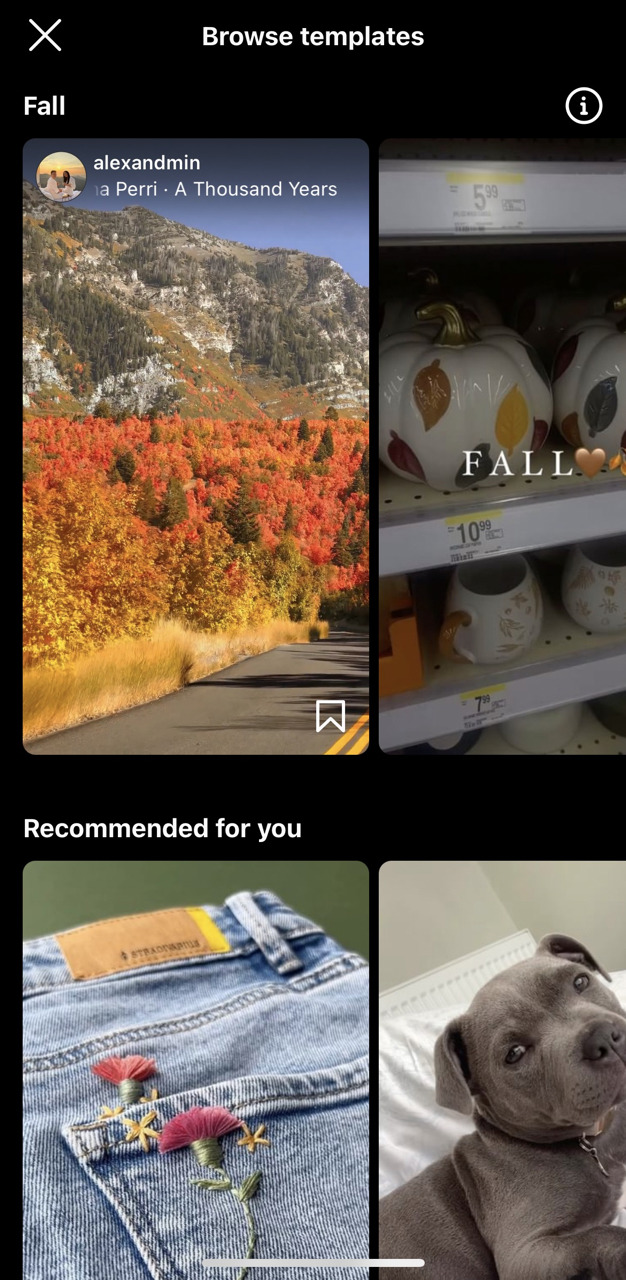
More Instagram Growth Advice
Check out more articles about how to build an Instagram that builds your brand.
- The Latest Instagram Algorithm Updates
- 10 Instagram Growth Hacks
- Instagram for Business
- How to Make Instagram Reels
- How to Set Up Instagram Shopping
- Instagram Bio Ideas
- How to Write Captions on Instagram
Are You Ready to Grow Your Instagram?
Before you go running off to do all of that though, we’d encourage you to think about why you want to be on Instagram.
We can’t guarantee this method will work as effectively for you as it did for us. It served our purposes because of our particular niche and what we wanted to get out of the platform. Instagram is certainly a powerful tool, but it’s not really for everyone or every business.
A few questions you might want to ask yourself are:
- Is my industry or my product visually appealing?
- Am I willing to share stuff that isn’t directly related to what I sell?
- Do I have time to engage in a new social media platform?
If you answered no to one or more of these questions, you might want to rethink why you want to jump on Instagram marketing. You don’t want to be wasting resources on something that just isn’t for you. Otherwise, we’d encourage you to use this guide to boost your followers.
